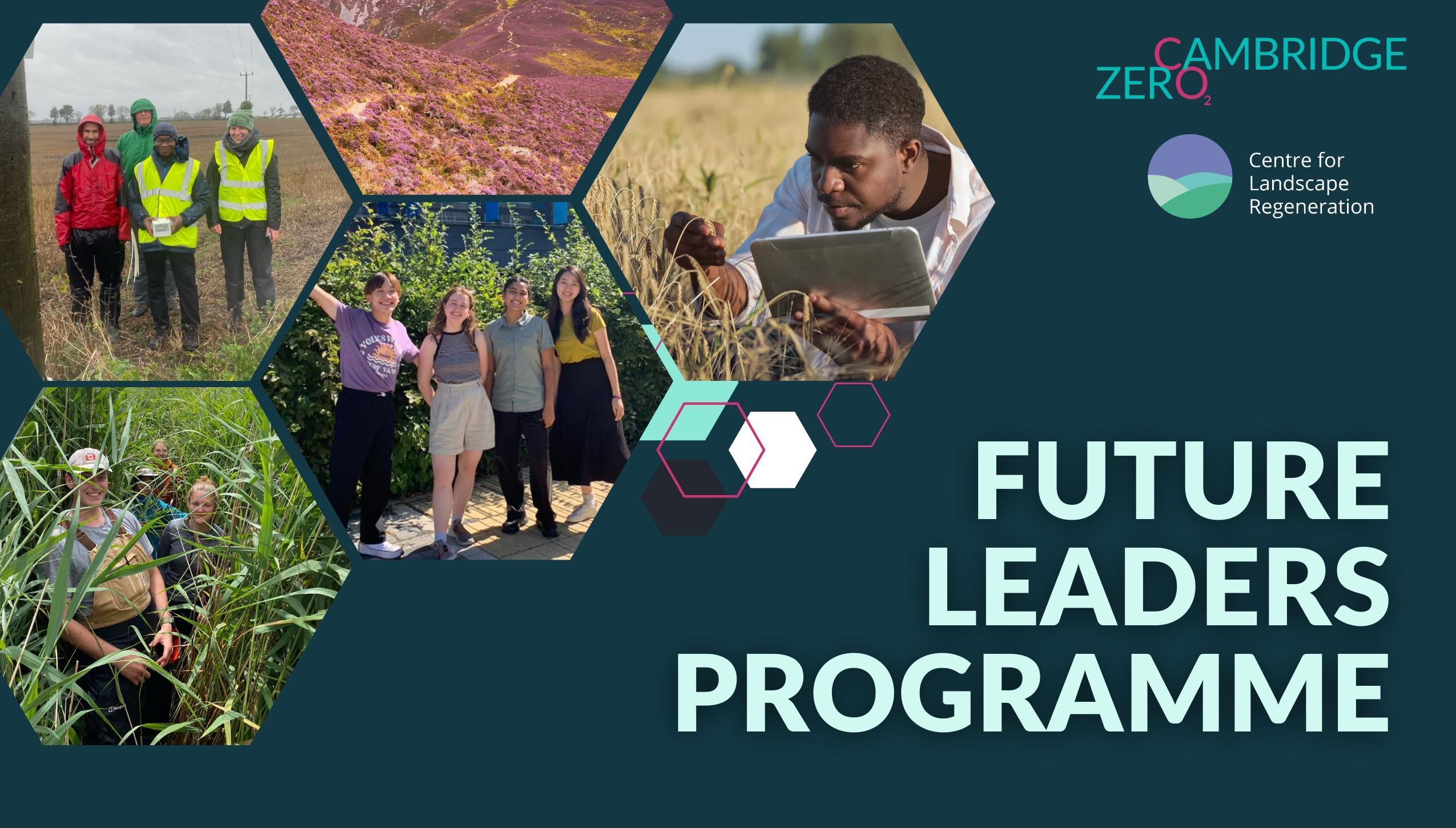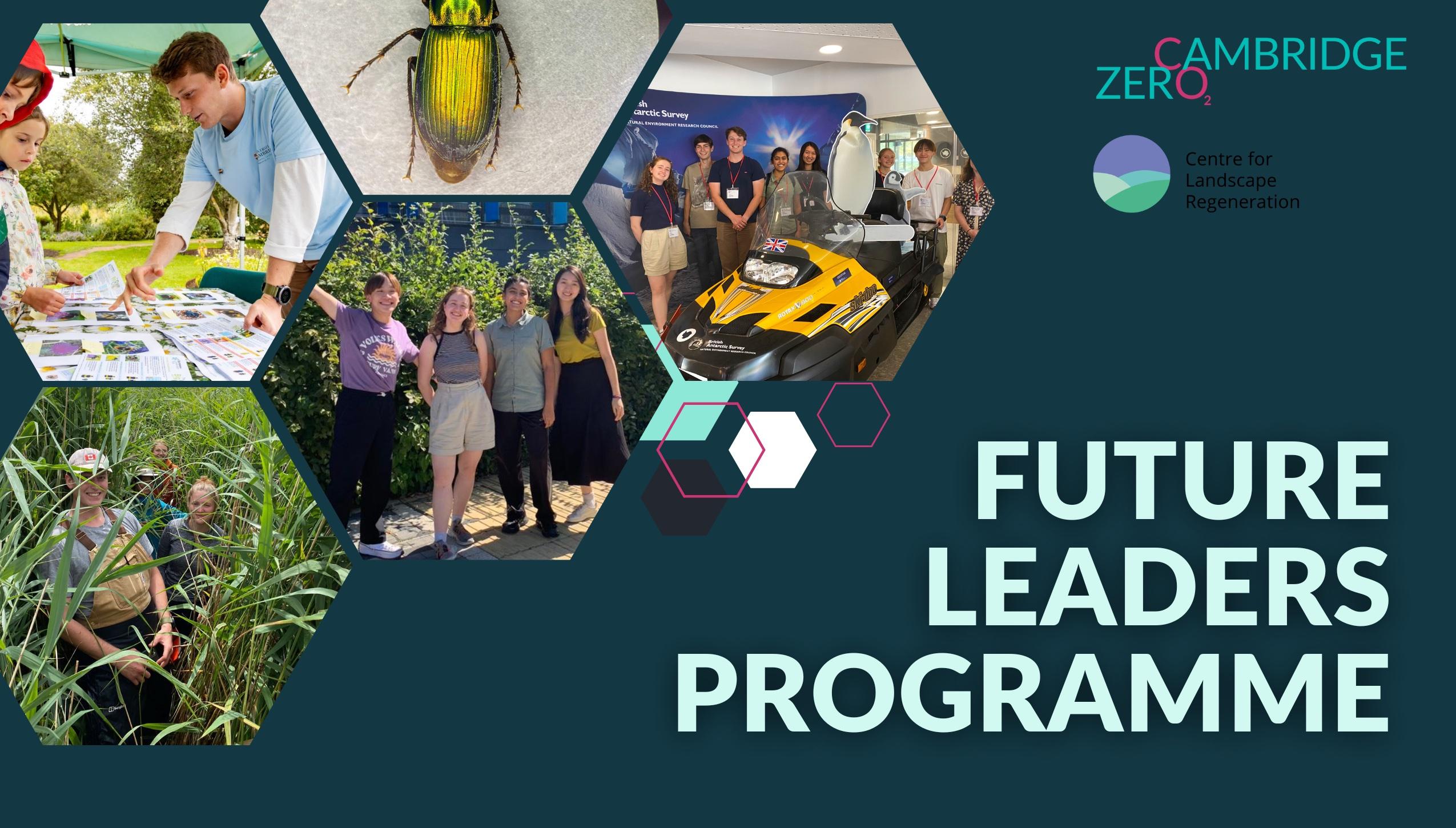Cambridge Zero recently held a Research Symposium on Economic & Societal Change at Hughes Hall, University of Cambridge. The session was opened by Emily Farnworth, Director of the Hughes Hall Climate Engagement Centre. Below is a summary of the presentations.
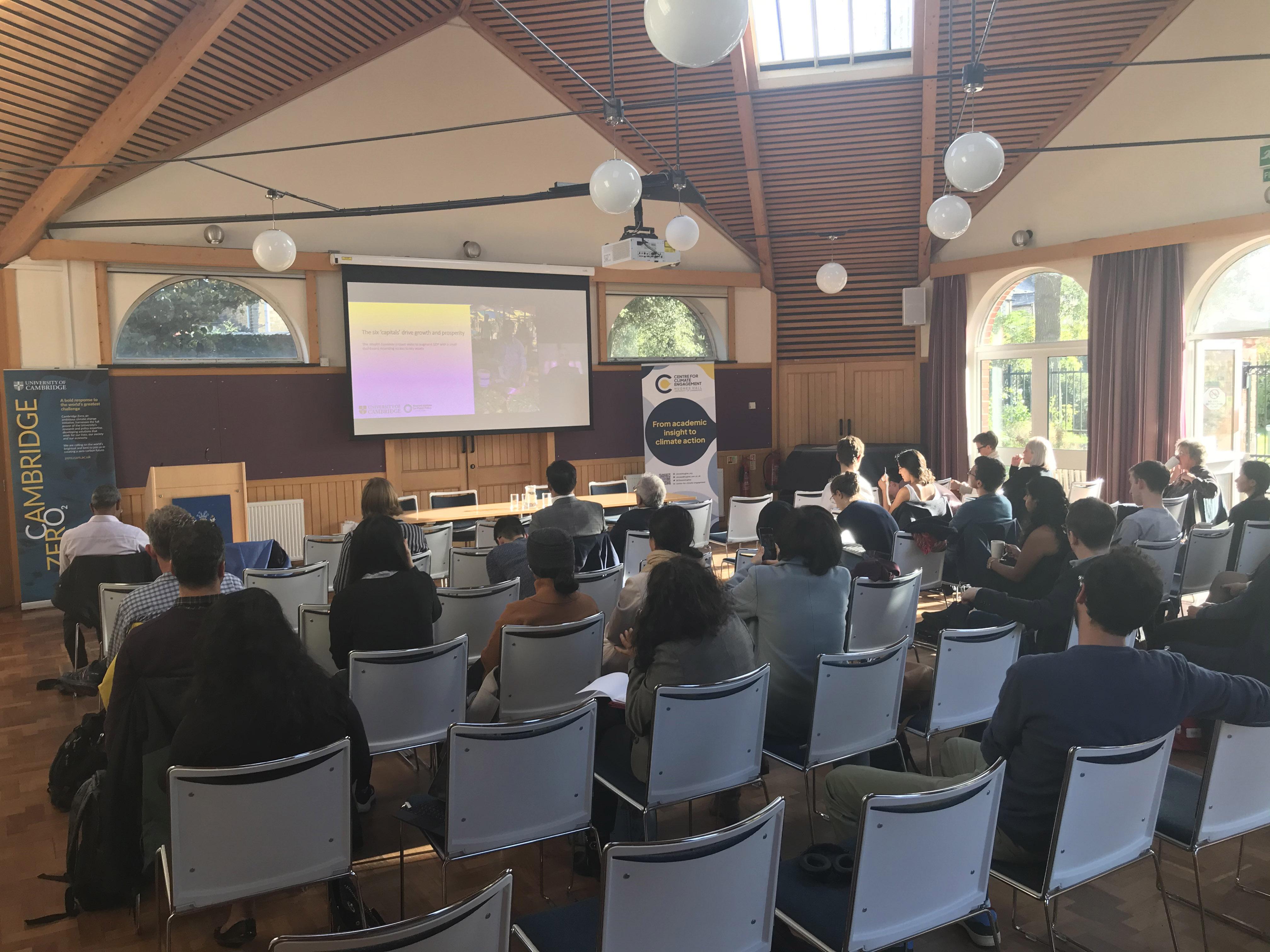
Prof Anil Madhavapeddy, Professor of Planetary Computing, Computer Laboratory Director, Cambridge Centre for Carbon Credits gave a keynote address on 'Financing forests: a credible approach to halting tropical deforestation'.
Prof Madhavapeddy spoke about the rate of biodiversity loss, desertification, and the drop in river levels. Tropical rainforests are the best carbon sinks, which also protect biodiversity. Land use issues can be exacerbated by consumer choices. For example, organic wheat production is 70% worse than traditional production methods and leads to greater land displacement due to less intensive farming. Rainforests are also cleared to grow soy in Brazil, which is a cash crop.
To protect the land, it is important to track what is happening on the ground. Remote sensing Global Ecosystem Dynamics Investigation (GEDI) Light Detection and Ranging (LIDAR) is used via the ISS satellite to map the ground’s topological picture. The imaging can calculate the amount of biomass of forests and carbon stock above ground. Providing funding directly to affected communities can offer alternative livelihoods to logging and preserve forests against deforestation.
The study provides evidence of the impact of the intervention by comparing areas which are part of the scheme and those outside it. This independent off-setting scheme can show the permanence of results, even after the end of the project, and can be the basis of verifiable carbon credits.
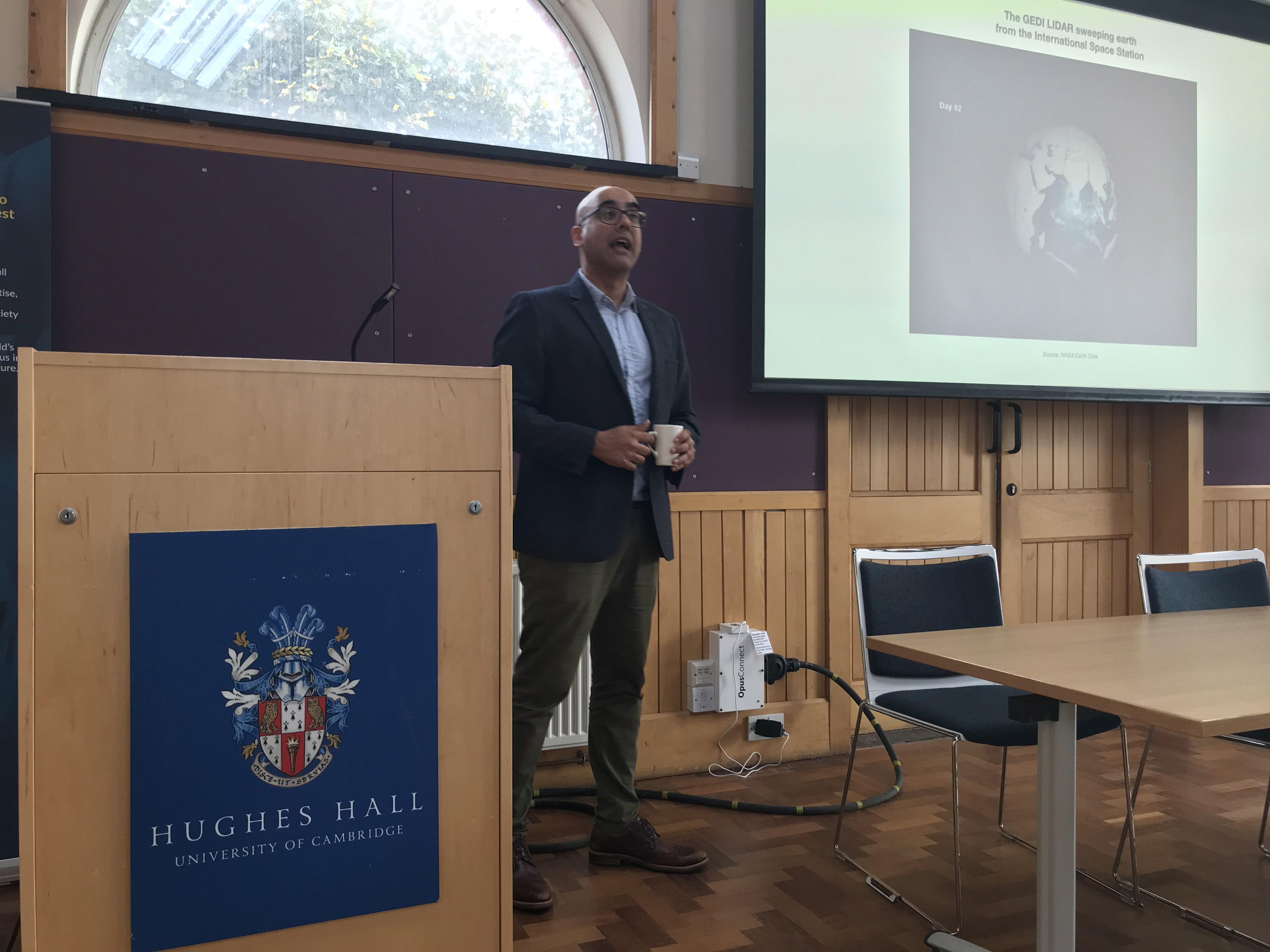
Emma Houiellebecq, PhD Candidate, Department of Engineering, gave a presentation about 'Impacts of climate change in fragile contexts: mapping the cascading effects in Venezuela and the Gaza Strip'.
The project maps critical infrastructure resilience, where a new systems-level thinking approach is needed.
The global risk landscape is evolving, with resource scarcity, natural disasters, social tensions and migration due to climate change some of the factors which are exacerbating issues in fragile parts of the globe.
The project has developed a novel system-of-systems view, which can produce a shock map to model short-term, high-disturbance events, e.g. extreme storms, and how they affect the rest of the system, compounding delivery of essential services.
Dr Ronita Bardhan, Associate Professor of Sustainability in Built Environment, Department of Architecture outlined 'What is so hard about the hard-to-decarbonise sector? – the case of residential buildings in UK'.
Energy consumption in the residential sector in the UK is one of the top causes of Carbon emissions, contributing around 16% of Greenhouse gas emissions in 2020. Covid-19 led to a 1% increase as more people stayed at home.
On average, 80% of the current building stock will still be occupied in 2050, with 1 in 5 homes built before 1919. Over 29 million homes in 2019 must be made energy efficient by 2050 for the UK to reach net zero. This would require 1.9 million homes to be decarbonised per year. On average 1 in 4 homes are hard to decarbonise with 19 million homes with an Energy Performance Certificate (EPC) rating of D or lower.
An expert consultation was held at the Climate Change Forum 2022 organised by the Royal Meteorological Society. Preliminary results of the research project showed that residents are keen to reduce emissions, but 41% of survey respondents still plan to install gas boilers as they are more cost effective compared to heat pumps, especially due to the upfront costs involved.
A mix of urban planning and space-based technology is required to provide incentives, behaviour change and encourage greater adoption. A visual map of heat loss shown to residents can help, together with financial mechanisms to share the cost benefits between residents, building companies and insurance firms. Better urban planning and building policies can accelerate the energy transition.
Dr Dimitri Zenghelis, Special Advisor to the Wealth Economy project, Bennett Institute for Public Policy, presented the keynote on 'The wealth economy: measuring social and natural capital'.
In traditional measures of GDP, the human, natural and other intangible social capital is not included. The Wealth Economy project seeks to augment GDP with a small dashboard recording access to key assets. These wider indicators are crucial to better understand levelling up and a just transition. Dr Zenghelis has contributed to a recent World Bank publication on 'The Changing Wealth of Nations: Managing Assets for the Future'.
Dr Tong Xu, CEENRG, Fellow, Cambridge Centre for Environment, Energy and Natural Resource Governance (C-EENRG), Department of Land Economy outlined 'Governmental energy innovation funding and institutions in China'.
China is the second biggest country to innovate energy technology research, development and demonstration (RD&D). China announced at the UN General Assembly in 2020 that it will target carbon neutrality by 2060. Dr Xu has used bottom-up and top-down methods to collect data on China’s National Key R&D Programmes using the International Energy Agency (IEA) classifications.
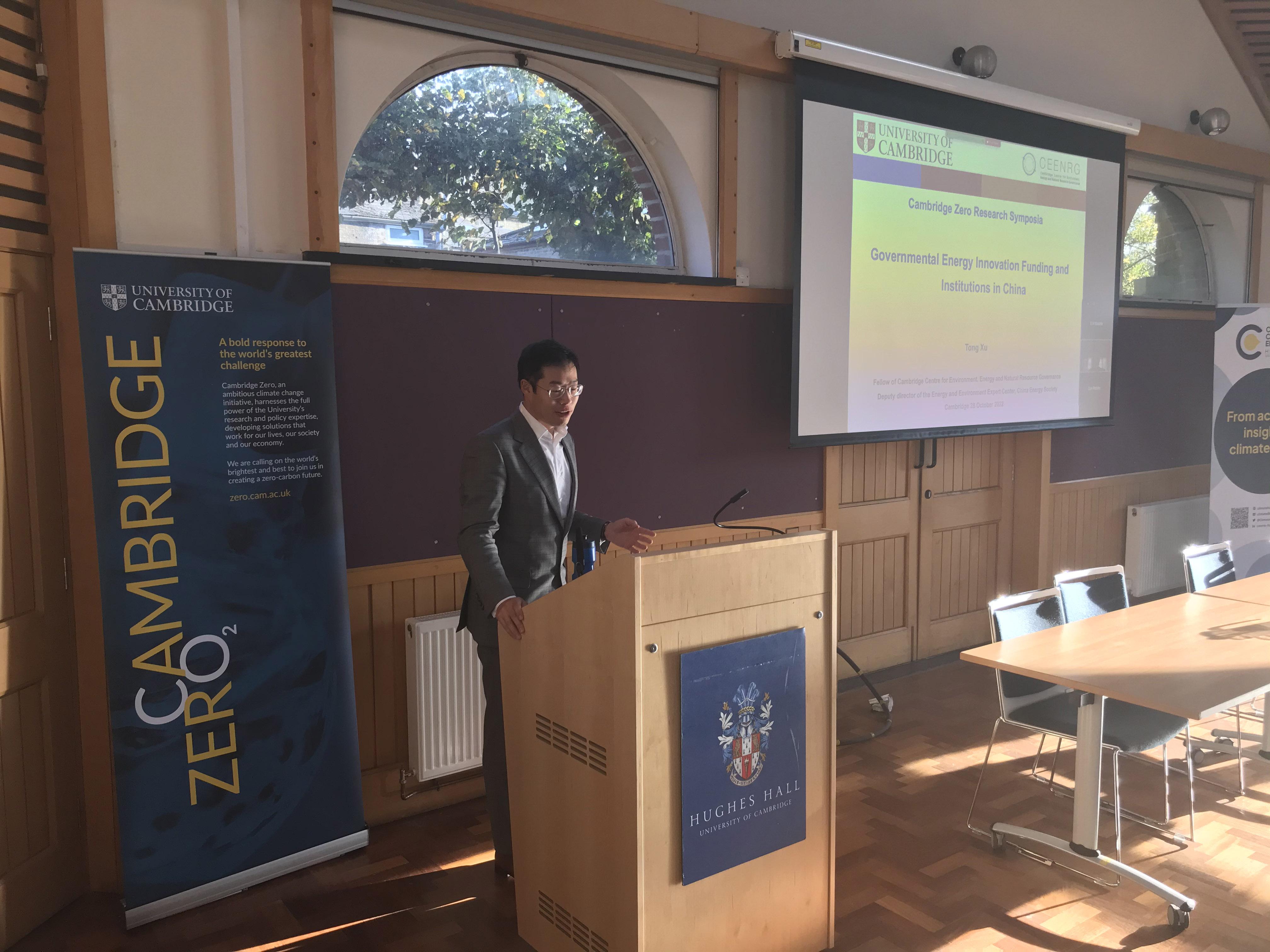
Dr Claire Barlow, Emeritus Faculty, Institute for Manufacturing, presented on 'Plastic food packaging: balancing the evils'.
There is huge pressure to reduce or eliminate the use of plastics for food packaging, mainly as a consequence of the devastating effects that plastic waste has on our natural environment. But it is a more complex picture. A more balanced systems-based assessment of the impact of plastics in food production, storage and use shows that carbon footprints are increased by moving away from petrochemical-based plastics. The whole issue of food packaging is highly emotive, and the knee-jerk responses can be problematic.
End of life options for plastics include mechanical recycling, chemical recycling or landfill. There is a need to focus on improving sorting and better cleaning of waste. There are barriers to polymer recycling. With recent targets to reach 30% of recycled content in new products, there is not enough recycled waste available and recycled plastic must be bought in from abroad.
There are particular issues with coloured plastics and tubs used in food packaging. Reducing the sheer number of different types of polymers would help, as many recycling plants can only handle a small number of different types of plastics. Labelling can also be confusing for consumers as most biopolymers are not biodegradable under normal conditions.
However, plastic packaging is not just a problem; it can increase shelf life and decrease food waste.
Prof David Reiner, Associate Professor in Technology Policy, Judge Business School, gave a keynote presentation on 'Climate action: lessons from history'.
Most countries and many companies are now committed to net-zero emissions. Understanding how we wound up in the current situation requires a deep dive into the history of the international climate negotiations. The seeds for the solutions agreed in Kyoto, Paris and Glasgow lie in the Earth Summit at Rio in 1992 and the commitments undertaken in the UN Framework Convention but also in the form of other international environmental agreements. In particular, the Montreal Protocol on ozone-depleting substances, which served as an imperfect template for the climate regime.
Dr Markus Hellenbrand, Postdoctoral Researcher, Department of Materials Science and Metallurgy, spoke about 'Computers and the internet: climate hazard or opportunity?'.
There is massive energy consumption from the ICT sector. The combined power consumption of data centres around the world is equivalent to 20 nuclear power plants and it is estimated that by 2030, up to 50% of global electricity consumption will be caused by Information and Computing Technologies (ICT). We need to consume less power and devices must become more energy efficient, with higher efficiency standards.
In addition, all our computers and smartphones require rare earth minerals to function, which are not sustainable. Better policy-making and societal behaviour change are key to addressing climate change.
Soniya Gupta-Rawal, PhD Student, Judge Business School, outlined her project on 'Upskill to upscale: capital-centric opportunities for skill training of micro-entrepreneurs in emerging markets'.
It is important to upskill microentrepreneurs in emerging markets to upscale their businesses. This empirical study examines the impact of specialised skill training on microentrepreneurs' performance. The study employs literature reviews, interviews, and empirical analysis of data from surveys and picture-based coding for 2500+ microentrepreneurs in India.


